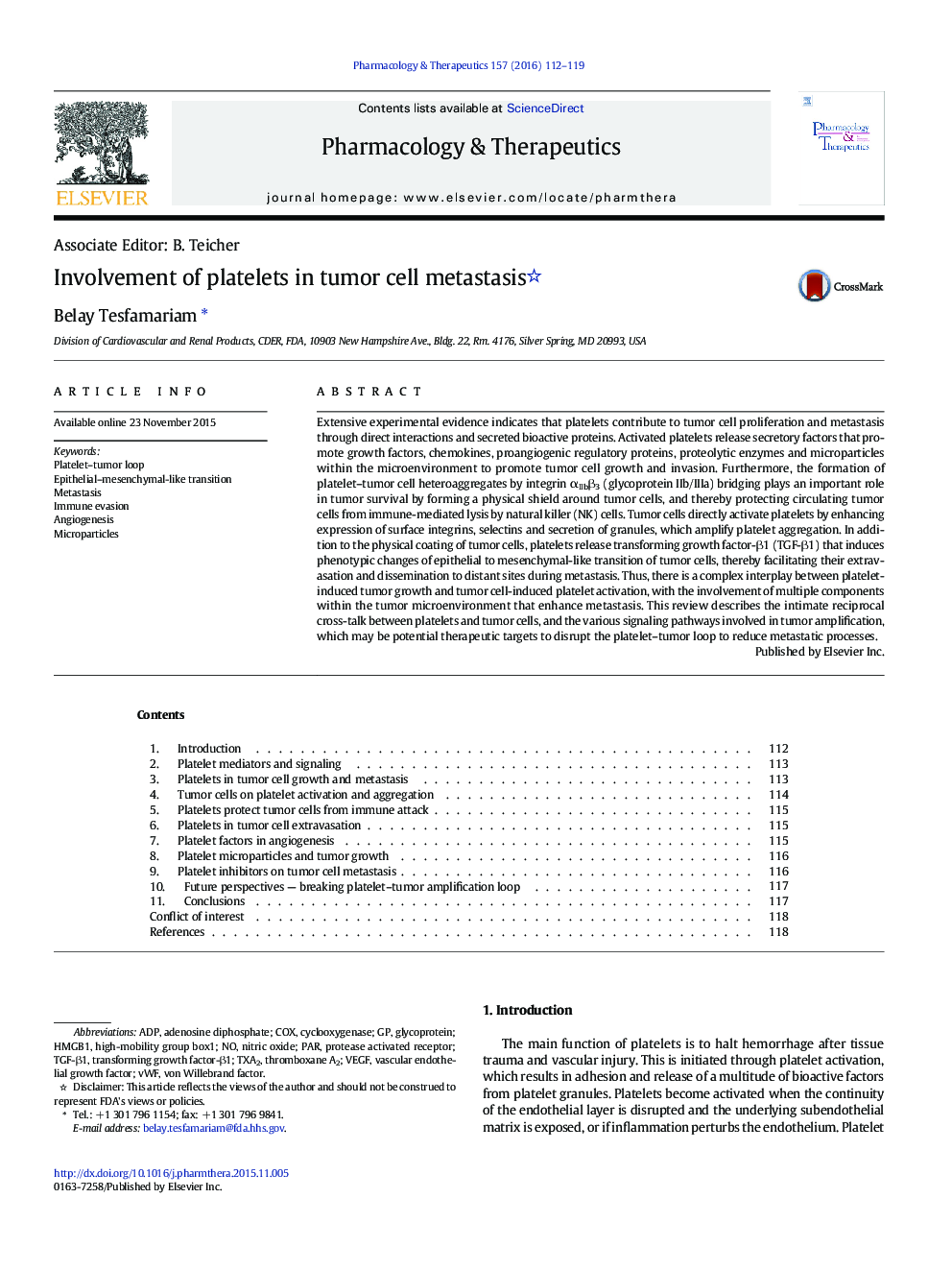| Article ID | Journal | Published Year | Pages | File Type |
|---|---|---|---|---|
| 2563489 | Pharmacology & Therapeutics | 2016 | 8 Pages |
Extensive experimental evidence indicates that platelets contribute to tumor cell proliferation and metastasis through direct interactions and secreted bioactive proteins. Activated platelets release secretory factors that promote growth factors, chemokines, proangiogenic regulatory proteins, proteolytic enzymes and microparticles within the microenvironment to promote tumor cell growth and invasion. Furthermore, the formation of platelet–tumor cell heteroaggregates by integrin αIIbβ3 (glycoprotein IIb/IIIa) bridging plays an important role in tumor survival by forming a physical shield around tumor cells, and thereby protecting circulating tumor cells from immune-mediated lysis by natural killer (NK) cells. Tumor cells directly activate platelets by enhancing expression of surface integrins, selectins and secretion of granules, which amplify platelet aggregation. In addition to the physical coating of tumor cells, platelets release transforming growth factor-β1 (TGF-β1) that induces phenotypic changes of epithelial to mesenchymal-like transition of tumor cells, thereby facilitating their extravasation and dissemination to distant sites during metastasis. Thus, there is a complex interplay between platelet-induced tumor growth and tumor cell-induced platelet activation, with the involvement of multiple components within the tumor microenvironment that enhance metastasis. This review describes the intimate reciprocal cross-talk between platelets and tumor cells, and the various signaling pathways involved in tumor amplification, which may be potential therapeutic targets to disrupt the platelet–tumor loop to reduce metastatic processes.
